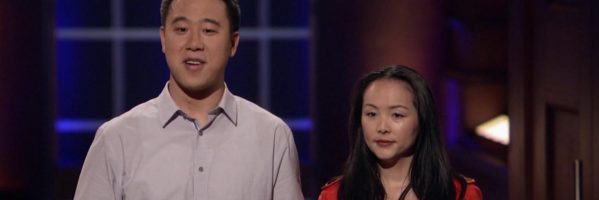The New USC Marshall Faculty, Summer Programs, and More – Los Angeles News

We’ve rounded up the latest news coming out of Los Angeles MBA programs this week.
Students Explore Asian Culture Through Unique Summer Program – Loyola Marymount University Newsroom
The Center for Asian Business at Loyola Marymount University’s College of Business Administration celebrates the 10 year anniversary of its “Exploring Asian Culture” program this year. The course, which has served 142 students since its premier ten years ago, is held at LMU in the spring and includes a two-week immersion experience in cities throughout Asia.
This year, students traveled to Shanghai and Beijing in China and Seoul and Busan in South Korea. Throughout the two week trip, students had the opportunity to visit cultural sites, attend lectures, and visit with local companies.
“The program was designed to broaden students’ perspectives through global imagination, enhance cross-cultural understanding, and exemplify positive world views,” comments Dr. Marki Hackett, Assistant Director for the Center for Asian Business.
“Our goal is that the program promotes a deeper understanding and appreciation between Asians and Americans, as well as prepare students to work in the global market.”
Read more about the Center for Asian Business and the “Exploring Asian Culture” course at Marymount here.
New Faculty 2018 – USC Marshall Newsroom
The Marshall School of Business at USC has recently announced the addition of nine new and continuing teacher-scholars.
In the past two years, the university added more than 50 new faculty members to the business school, covering a wide range of departments including entrepreneurship, economics, and accounting. Marshall MBA alum Maria Colman, lecturer in the Department of Business Communication, and Feng Chen, Department of Data Sciences and Operations lecturer, are also among the nine new faculty members joining the school this year.

More than 50 new faculty members have joined the USC Marshall School of Business over the past two years.
“We are excited about these faculty appointments, which build on our long tradition of fostering excellence in both research and teaching,” comments Marshall’s Vice Dean for Faculty and Academic Affairs Nandini Rajagopalan.
Click here for more information on the new faculty joining Marshall this year.
A Career That Makes Memorable Experiences for Others: Incoming Director Ellen Kim Discusses Opportunities in Entertainment and Hospitality – Mihaylo Newsroom
Associate Professor of Management, Ellen Kim, has been named as the new Director of the Center for Entertainment and Hospitality Management (E&HM) at the Mihaylo College of Business at California State University, Fullerton. The Center aims to make students and graduates aware of the many opportunities in this growing field, especially in the Southern California area.
With Disneyland, Southern California has a unique position when it comes to careers in entertainment and hospitality. The E&HM Center is the only hospitality program at a university in Orange County, positioning Kim to play a defining role in the way the industry grows in the area.
“Our students major in business, taking courses in accounting, finance, marketing and operations that are very challenging, which makes them well-rounded,” Kim comments in the Mihaylo Newsroom.
“What makes our students stand out is that they have a strong business foundation, which Mihaylo College provides.”
Read more about the Center at Mihaylo here.
Berkeley Welcomes Record Number of MBAs in for Class of 2020

Last week, UC Berkeley’s Haas School of Business unveiled stats for the incoming students that comprise its full-time MBA Class of 2020.
With 291 full-time MBA students (along with 276 evening and weekend students), the Berkeley Class of 2020 is larger than any before.
The new class one of the most academically accomplished in school history. Average GPA for this year’s first-year class is 3.66, off just .05 from last year’s. But an increase in average GMAT offset the tiny backslide in GPA. At 726, it moved up one point higher than last year’s incoming class.
In terms of professional experience, Haas students come from various backgrounds. About a quarter of the students come from the consulting industry, and another 20 percent come from banking/financial services backgrounds. The industries drawing the third-, fourth-, and fifth-most Haas grads are high tech (10 percent), nonprofit (9 percent), and healthcare/pharmaceutical/bio (7 percent). In addition, 5 percent of the incoming class has military experience.
The percentage of women in Haas’s incoming class is also up over the previous year, something we’ve also seen this year at Northwestern’s Kellogg School, Duke’s Fuqua School, and USC Marshall, among others.

About 43 percent of the incoming Berkeley Class of full-time MBAs are women—a 3 percent increase. International students from 30 countries make up around 34 percent of the class, down from 39 percent last year. Here, too, Haas is not alone. Many U.S. schools have shared, in both in published class profiles and informal conversations, that international application volume was down, or at best, flat year over year.
Former Haas Dean Richard Lyons stepped down in June after 11 years with the school, a role in which he raised more money than any prior dean and oversaw the construction of Connie & Kevin Chou Hall. The addition of the new building helped make it possible to expand the Haas class, an effort Lyons championed. He and other supporters viewed it as a way to help ensure that Haas has enough graduates to command attention from the world’s top recruiters without compromising the intimacy and culture.
“Part of the reputation of the school is a function of its scale, and there are times where you are just not at the right reputational scale. You’re too small,” he explained in a 2017 interview with Clear Admit.
“It’s a super intimate experience—there’s no question about that—but target companies want to go to a place where there are enough people graduating that they can send a team of recruiters, for example. If you are too small you are below the threshold.”
Ann Harrison, a renowned economist and member of the faculty at the University of Pennsylvania’s Wharton School, will serve as Haas’s next dean. Harrison begins her term on January 1, 2019. Professor Laura Tyson, the current interim dean since Lyons left, returns to her prior faculty positions next year.
This article has been edited and republished with permissions from Clear Admit.
Cal State Fullerton Debuts New Accounting Courses, and More – Los Angeles News

We’ve rounded up the biggest news stories coming from business schools in the Los Angeles metro area this week, including the introducing of new Cal State Fullerton accounting courses.
CSUF Mihaylo Accounting Program Debuts New Courses – Mihaylo Newsroom
The Mihaylo College of Business at the California State University, Fullerton recently announced new courses in the school’s accounting program. The accounting department, which aims to provide students with a well-rounded introduction to the field, hopes the new courses will offer the skills necessary for students to succeed in the industry, whether within major companies or smaller firms.
The new courses will include: Accounting Data Analytics, Seminar in Contemporary Accounting Problems, and Accounting for Income Taxes.
All classes will be available in either fall 2018 or spring 2019 semester. Classes will be taught by professionals in the field, such as Ernst & Young Executive Director of Tax Services Roger Idnani, who teaches the Accounting for Income Taxes.
Click here for more information on the Department of Accounting at Cal State Fullerton Mihaylo.
Report from the Summit: Blockchain, Tariffs and Transformation Were the Buzz at Sixth Annual Global Chain Excellence Summit – USC Marshall Newsroom
Visitors from around the world gathered in at USC’s Marshall School of Business this August for the sixth annual USC Marshall Global Supply Chain Excellence Summit. The two-day conference which gathered more than 500 leaders in the field to share their thoughts and industry insight.
USC Marshall dean, James G. Ellis, comments:
“We are fortunate to be able to facilitate a meeting of the institutions, government agencies, entrepreneurs, professionals and students engaged at the highest levels of the global supply chain.”
The conference included a lineup of keynote speakers, presentation of industry awards, and updates from the field. In addition to staying current within the industry, the conference helps to connect business students with those in the field seeking fresh talent. At the close of the summit, attendees were invited to join for a reception and industry career fair, allowing for networking opportunities.
Read more about USC Marshall and the Supply Chain Excellence Summit here.
L.A. County Jobless Rate Steady at 4.5 Percent in July – Los Angeles Business Journal
A new report from the Los Angeles Business Journal reveals that the county’s unemployment rate has remained steady throughout the summer, staying at roughly 4.5 percent throughout July.
Despite seasonal job losses throughout the education sector, the rate of unemployment in L.A. County remains the same. Adjusting for the payroll jobs that dropped in June with the end of the academic year, L.A. County reported a net gain of 7,300 jobs in July. Over the past year, the net gain has been roughly 49,000 jobs, or 1.1 percent. The slow growth seems to indicate the fact that L.A. County has been operating at nearly full-employment for some time.
To read more about job growth in L.A. County and read the Los Angeles Business Journal‘s full report, click here
Shark Tank Success, Security, and More – Los Angeles News

Check out some of the latest news coming out of business schools in the Los Angeles metro this week.
The Founders of a ‘Shark Tank’ Success Relied on a Key Piece of Business School Advice – Business Insider
Hanna and Mark Lim, husband and wife entrepreneurs, recall the crucial role the UCLA Anderson School of Management played in the $100,000 investment their company was awarded on the hit TV show Shark Tank.
In 2012, Hanna and Mark presented a pitch for their startup company, Lollacup, which produced safe sippy cups for children. Going into the pitch stricken with fear, Mark reminded Hanna of an important piece of advice he had received during his business school education. While at UCLA Anderson, Mark had already gained experience in pitching business plan. During school, he and his classmates would often pitch ideas not just for professors but for professional venture capitalists. Throughout all this, he learned to not be overwhelmed by the celebrity of the investors but to instead treat them as equals.
“We’re here pitching to investors who are essentially our equals,” Mark told Hanna before their Shark Tank pitch began. “We’re not here for a handout; we’re not here to beg. This is an investment. We’re potentially handing over part of our company that we’ve built.”
The advice payed off, with both Mark Cuban and Robert Herjavec deciding to invest $100,000 for 40 percent of the company. What began as Lollacup has since re-branded as Lollaland, which provides a range of products for infants and toddlers, and recently passed $2 million in sales.
You can read more about the Lims and their experience on ‘Shark Tank’ over at Business Insider.
Neel Patel Won the $3,000 HIMSS Scholarship – Cal State LA CBE News Archive
Neel Patel, a MBA/MSHCM at the California State, Los Angeles College of Business and Economics, was recently awarded with a $3,000 scholarship from the Health Information Management Systems Society (HIMSS). HIMSS, a premier organization for professionals in the healthcare information management field, presented Patel with the award earlier this summer, making him the second student in Cal State LA history to receive the distinction. Patel has left his mark on the university before, however, as part of the winning team in this year’s Western Regional Healthcare Executives College Bowl Case Study Competition.
Patel connected with the HIMSS through Thao Tran, Chair of Academic Alliance Community for HIMSS, who was brought in as a guest speaker for one of Patel’s classes. Tran has been a crucial part of the connection between CBE and the HIMSS, helping introduce students to the organization and its benefits since 2011.
Read more about Health Information Management at CBE and the HIMSS here.
In Network Security, “The Bad Guys are Always Ahead” – USC Marshall Newsroom
Richard Drobnick, Director of the IBEAR MBA program at USC’s Marshall School of Business, recently interviewed Global CTO of NTT Security Kazu Yozawa for the USC Marshall Business Class podcast. During the interview, Yozawa maintains a positive view of the future of network security but warns vigilance. From young forgers to state sponsored hacking, the threats against network security may be greater now than ever.

Global CTO of NTT Security Kazu Yozawa / Photo via marshall.usc.edu
According to Yozawa, “only a few executives understand the situation,” making education surrounding security and how computer networks operate will be crucial going forward.
You can listen to the full interview here.
USC Marshall Honored with Two Telly Awards, and More – Los Angeles News

Check out some of the top news stories coming out of the Los Angeles metro this week, including USC Marshall earning a pair of Telly Awards for its Online MBA program.
The Taos Institute Recognizes Dr. Gary Mangiofico as the 2018 Honorary Associate – Graziadio Business School Newsroom
Dr. Gary Mangiofico, Executive Professor of Organization Theory and Management at the Pepperdine University Graziadio Business School, was recently honored by the Taos Institute as a 2018 Honorary Associate for his contributions to the field. An international network of scholars, the Taos Institute is dedicated to exploring the way social theory and language overlap in the professional space. Honorary Associates like Dr. Mangiofico are selected based on work the institute believes has impacted and advanced their overall mission and ideals.

Dr. Mangiofico / Photo via bschool.pepperdine.edu
A faculty member at Graziadio since 2003, Dr. Mangiofico has been an important figure in the organizational development field. In addition to his educational experience, Mangiofico has more than 20 years of professional experience, having worked as a CEO, COO, consultant, and general management executive for a variety of companies.
You can read more about the Taos Institute and Dr. Mangiofico’s work here.
Using Twitter for Product Launches: Mihaylo Management Professor Jennifer Chandler Examines Video Game Console Launches – Mihaylo Newsroom
New research from the faculty at the Mihaylo College of Business at the California State University, Fullerton, looks at important trends in business and society. Associate Professor of Management and Director of Mihaylo Graduate Programs, Jennifer Chandler, and Assistant Professor of Marketing Yuna Kim, recently looked at how Twitter factors in to the launches of new products, focusing particularly on the launch of new game consoles like PlayStation 4 and Xbox One.
By studying the language used on social media, Mihaylo faculty hope to create a standard for how company managers and marketers can use these platforms for an unprecedented connection between consumers and the products they love.
“In today’s society, consumers have a louder voice because of social media,” Chandler comments. “[A]nd when it comes to new products, this voice is crucial because everyone has the social media platform to amplify his or her opinion.”
You can check out more from Chandler’s study here.
Taking Home Two Tellys – USC Marshall News
The Online MBA program at USC’s Marshall School of Business was honored at the 39th Annual Telly Awards this past month, taking home two separate top prizes. Since 1979, the Telly Awards have honored “excellence in video and television across all screens.”
Each year, the awards receive over 12,000 entries from across the country and world. This year, Marshall’s Online MBA program was honored in the education category for their “Approaches to Strategy” series and “Approaches to Strategy: The Cold War” module.
USC’s Online MBA program has been honored multiple times by the Telly Awards already, despite being around for only three years so far. In 2016, the program won two bronze awards for the “Big Ideas in Economics” modules. Sandra Chrystal, Vice Dean for Online Education and Professor of Clinical Business Communication, commented on the program’s success.
“Everyone at Marshall shares the goal of quality online programs,” Chrystal said in a press release from the business school. “We are very proud of this recognition.”
You can read more about the USC’s Online MBA program here.
Just How Did USC Marshall’s MBA Program Attain Long-Elusive Gender Parity?

This fall, USC Marshall became the first top-tier MBA program to reach gender parity. The incoming full-time MBA Class of 2020 has as many women as men—actually a few more—52 percent. This notable achievement is a massive 20-point percentage leap from last year when women made up just 32 percent of the incoming class.
“We are proud to achieve this distinction,” Dean James G. Ellis said in a press release. “Our ongoing focus on diversity and inclusion is playing out in real numbers now. This is only the start.”
Gender Parity in Business School
While many other top schools have been working to reach gender parity over the last few years, they’ve thus far fallen short of the 50-50 mark. According to a 2017 report by the Forté Foundation and the Graduate Management Admission Council (GMAC), the average enrollment of women in full-time MBA programs at 36 business schools is 37.8 percent. That’s an improvement of less than one percent from 2016, when it was 37.1 percent, and only a few percentage points up from 2013, when it was 34 percent.
Several other leading schools have hovered in the low 40s in recent years—including Michigan Ross (43 percent), Yale School of Management (43 percent), Dartmouth Tuck (44 percent), and the University of Pennsylvania’s Wharton School (44 percent). And Northwestern’s Kellogg School of Management recently announced that its incoming Class of 2020 is 46 percent women, a record for the school. These figures all make USC Marshall’s achievement even more impressive, though it’s also a statement on women in business.
In general, women earn 60 percent of graduate degrees and fill up more than 50 percent of graduate classes, even those in male-dominated professions such as law and medicine. MBA programs, though, have lagged stubbornly behind, which many believe to be the result of a combination of factors. Some of these include the timing of business school, which is later than law or medical school because of the required prior work experience; the return on investment, and the fact that men with an MBA out-earn their female counterparts throughout their careers.
Still, there have been strides forward. Just five years ago, only three of the top 25 schools enrolled more than 40 percent women in their MBA programs. Last year, nearly half had reached that mark. Some schools have yet to release class profile information for the current incoming class, so it remains to be seen how this year compares to last. Regardless, USC Marshall reaching the 50-percent mark is a standout achievement, particularly since it hadn’t even broken 40 percent before this year.
“I’m super thankful and proud to be here at this particular point in time,” Gabriela Omenn (2020) said. “One of my key interests beyond business school is to elevate women and get them into positions of power, so it’s directly aligned with where I want to go in my career. It feels really amazing to be among such a high class of students, and I believe it’s going to be something that pays off in dividends after school is done.”
USC Marshall MBA Class of 2020, More Than Half Women
To get an idea about how USC Marshall became the first top business school to break through the gender parity barrier, we talked to Evan Bouffides, assistant dean and director of MBA admissions.
-
Recruiting Efforts Were Strong
According to Bouffides, this past year was a solid one for recruiting at USC Marshall across the board, with improved outreach to all prospective applicants, women included. But Marshall did place a concerted effort on reaching women applicants specifically, he said. These targeted outreach efforts included participation in Forté Foundation events (Marshall is a Forté member school), programming for women as part of on-campus visits, and online marketing campaigns.

Evan Bouffides, USC Marshall Assistant Dean and Director of MBA Admissions / Photo via USC Marshall
“We’ve been a bit more deliberate and certainly more comprehensive in the way we send messaging out about our program, about the admissions process, and about the university,” explained Bouffides. “ In general, I feel that we touched a lot more people via electronic communication than we have in the past.” In particular, the school increased its follow-up communication with candidates who attended various events.
Bouffides also thought January’s Women’s Week recruiting event was the best one yet. More than 100 women visited campus for this one-day event to learn about the school, meet other applicants, and get a taste of what it’s like to be a USC Marshall MBA student.
“Not only did we have a larger group than in the past, but we also, hopefully, presented a better case for ourselves than we had in the past,” said Bouffides. “Our students also did a great job contributing to the decision-making process in a tangible way.”
Current students play a big role in recruiting efforts for prospective applicants at USC Marshall. Both Marshall’s ambassador students, who work directly with admissions, and student members of its Graduate Women in Business club, reached out personally to candidates and admits as part of the admissions process to share their unique student perspectives. Many of these students also helped organize some of the recruiting events for prospective applicants.
“We also have a follow-up program, where once a person is admitted, we put them in touch with a lot of different groups, students being the preeminent group,” Bouffides explained. “The students did a great job answering questions and convincing people to join us.”
-
Improved Rankings and Reputation
Out of the many factors that may have contributed to USC Marshall reaching gender parity this year, the school’s improved rankings and reputation had a distinctly positive effect. Marshall jumped four places to 20th in the latest U.S. News ranking of leading MBA programs. And the Financial Times ranked Marshall as one of the best business schools for women to pursue an MBA (20th in the world and 12th in the United States).
“Our rise in rankings and the good press we’ve had over the last year or two has helped make us more attractive to candidates,” said Bouffides. “This, along with our other efforts, helped bring the entire class together.”
-
A Great Yield
Another factor that contributed to USC Marshall’s gender parity was this year’s impressive yield—the percentage of admitted students who ultimately enroll. It was a significant change from last year’s class, when less than a third of admitted female students (31.3 percent) chose to enroll. This year, 40.1 percent of admitted females entered the full-time MBA program. This meant that more of the students USC Marshall wanted actually attended, resulting in the highest-quality class on record.
The average GMAT score for the Class of 2020 is 705, up from 703 last year, and the average GPA is 3.5 compared to 3.48. This year’s incoming class also includes a record number of underrepresented minorities—21 percent of domestic students, compared to 16 percent previously.
“This year’s applicant pool was the strongest in our program’s history,” said Bouffides. “They brought the highest average GMAT score and the highest average GPA. The women, in particular, were extraordinarily well prepared.”
USC Marshall in the Future
So, where does USC Marshall go from here? We asked Bouffides if the school hopes to reach the same levels in coming years, but he said there is no prescribed quota for women in future classes. The goal is always just to bring in the most robust possible class, and diversity is a big part of that—gender parity being just one aspect.
“First, let me explain that we didn’t go into the admissions cycle this year stating that gender parity was our goal. We never do that for any particular metric when it comes to admissions,” said Bouffides. “We didn’t go into the season with parity as a goal, but it was an outcome of the fact that we had a large and talented group of women applying to the program. My hope is that now that we’ve hit this mark, it will be easier going forward, and hopefully, we’ll be even that much more attractive to women and men as well as they think about schools to which they may apply.”
As for Omenn, she sees USC Marshall as a model for the future where diverse backgrounds represented by different genders and groups can come together to share their ideas and perspectives—elevating discussions for a richer experience.
“Gender parity is a good model for future applicants, not just at USC but at any business school,” said Omenn. “In years to come, applicants will be able to see more of themselves in business school, which will hopefully inspire them to keep striving for their goals.”
